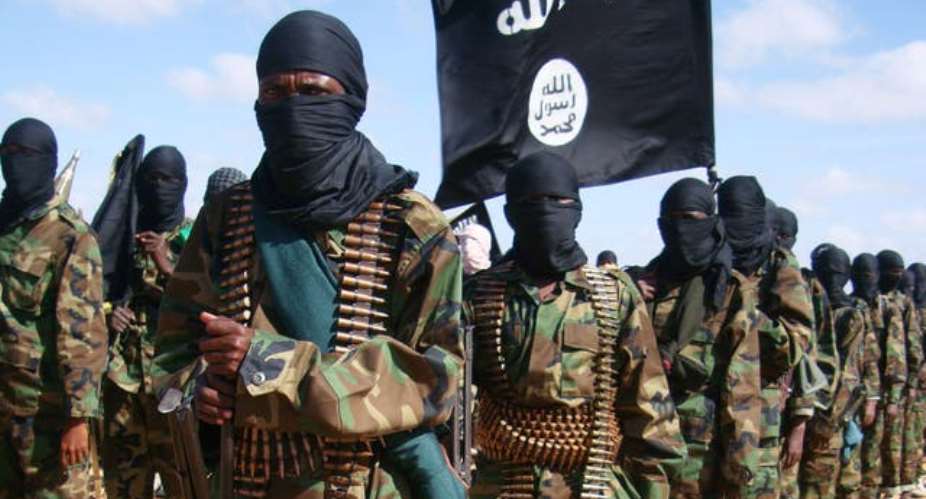Somalia has been plagued by decades of war, political instability, and poverty. In this context, extremist groups like Alshabaab have emerged, exploiting the vulnerabilities of the population and spreading their ideology of violence and religious fanaticism. However, despite their efforts, it is clear that religious fanaticism won't succeed in Somalia, and the country has the potential to build a more peaceful and prosperous future.
Alshabaab, which means "The Youth" in Arabic, emerged as a radical Islamist group in Somalia in the mid-2000s. Initially, the group presented itself as a defender of Somali sovereignty and Islamic values, and gained support from some segments of the population who were disillusioned with the corrupt and ineffective government. However, over time, Alshabaab revealed its true colors, as it engaged in brutal attacks against civilians, government officials, and foreign aid workers, and imposed a harsh form of Sharia law that included amputations, stoning, and executions.
Alshabaab's modus operandi is to target vulnerable communities, such as those living in remote areas, displaced persons camps, or schools, and use violence and intimidation to impose their ideology. The group has also carried out attacks in neighboring countries, such as Kenya and Uganda, and has pledged allegiance to the global jihadist movement.
Despite their presence in Somalia for over a decade, Al-Shabaab has been unable to establish a lasting foothold in the country. The group has faced significant opposition from both the Somali government and African Union forces, who have been working to weaken the group's capabilities.
One of the reasons for Al-Shabaab's inability to take hold in Somalia is the resilience of the Somali people. Somalia has a long history of clan-based politics and tribal affiliations, which have often served to check the power of any one group. Additionally, many Somalis have rejected the group's extremist ideology, which they view as incompatible with their traditional Islamic beliefs.
However, the Somali government and its international partners remain committed to defeating the group and restoring stability to the country. In recent years, Somali security forces, with the support of African Union troops, have made significant gains against Al-Shabaab, retaking territory previously held by the group and disrupting its operations.
Despite Alshabaab's efforts, it is clear that religious fanaticism won't succeed in Somalia. One reason for this is that the Somali people have a long tradition of tolerance, diversity, and coexistence. Somalia is a predominantly Muslim country, but it has a rich history of cultural exchange and trade with other regions, such as the Arab world, Persia, India, and China. Somali society is characterized by clans, sub-clans, and other social groups that have their similar traditions, customs, and language, but that also interact and intermarry with each other. This lack of diversity has been a source of strength for Somalia, as it has allowed the country to adapt to changing circumstances and to resist external pressures.
Another reason why religious fanaticism won't succeed in Somalia is that the country has a vibrant civil society, including religious leaders, women's groups, youth organizations, and human rights defenders, who are committed to promoting peace, democracy, and human rights. These groups have been at the forefront of efforts to counter Alshabaab's propaganda and to build alternative narratives that emphasize the values of tolerance, dialogue, and respect for diversity.
In the end, it is the resilience of the Somali people, their commitment to peace and stability, and their rejection of extremism that will ultimately determine the future of Somalia. While the road ahead may be challenging, there are reasons to be hopeful that Somalia can overcome the threats posed by religious fanaticism and continue on a path towards peace, prosperity, and progress.





 We’ll no longer tolerate your empty, unwarranted attacks – TUC blasts Prof Adei
We’ll no longer tolerate your empty, unwarranted attacks – TUC blasts Prof Adei
 Bawumia donates GHc200,000 to support Madina fire victims
Bawumia donates GHc200,000 to support Madina fire victims
 IMF to disburse US$360million third tranche to Ghana without creditors MoU
IMF to disburse US$360million third tranche to Ghana without creditors MoU
 Truck owner share insights into train collision incident
Truck owner share insights into train collision incident
 Paramount chief of Bassare Traditional Area passes on
Paramount chief of Bassare Traditional Area passes on
 Two teachers in court over alleged illegal possession of BECE papers
Two teachers in court over alleged illegal possession of BECE papers
 Sunyani: Victim allegedly shot by traditional warriors appeals for justice
Sunyani: Victim allegedly shot by traditional warriors appeals for justice
 Mahama vows to scrap teacher licensure exams, review Free SHS policy
Mahama vows to scrap teacher licensure exams, review Free SHS policy
 Government will replace burnt Madina shops with a new three-story, 120-store fac...
Government will replace burnt Madina shops with a new three-story, 120-store fac...
